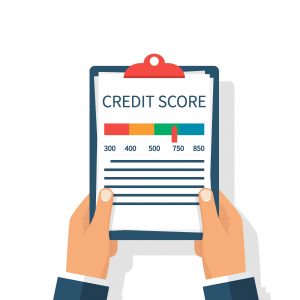Credit scores affect affordable housing eligibility. NJ lawmakers consider bill to help renters

But the devastating storm drove Griffith from her New York beach home. She stayed with friends she knew from church, she checked into hotels, or she slept in her car — punctuated by visits to the hospital for sickle cell anemia, a red blood cell disorder.
Her debts began to mount. And her credit score dropped.
In 2016, Griffith was granted a Section 8 voucher because of her illness and through a Sandy program meant to help low-income families displaced by the storm pay for some rent. But voucher recipients must find a place to live within two months or they can lose the benefits, so the clock was ticking.
Yet Griffith was denied housing by landlords repeatedly because her credit score had fallen — even for a trailer home she had been excited about.
“Everything is credit — it starts with credit and ends with credit,” Griffith said. “Oftentimes, they don’t even let you see a property until you tell them your credit score.”
A renter’s credit score is a huge roadblock for those looking for housing — especially affordable housing subsidized by federal or state funds. To address that, New Jersey lawmakers are considering a bill, S2516, that would force landlords to consider alternative ways to judge creditworthiness for a narrow set of New Jerseyans seeking subsidized housing.
Instead of a credit score, landlords would have to look at factors such as employment and health history, or any extenuating circumstances that caused a renter to miss a past payment — such as, in Griffith’s case, being displaced by a storm. The legislation has been introduced in each session over the past decade, and this is the first year lawmakers voted it out of a Senate committee. It has not moved in the Assembly.
Housing advocates say renters should be judged on more than a number that can include inaccuracies, is difficult to improve, and has a disparate impact on Black and brown people, historically barred from receiving traditional loans and pushed to higher-risk options that can lead to lower scores.
“It’s a revolving door,” said Marcia Dash, a case manager at Sierra Housein East Orange, which operates transitional housing for women. “They can’t pay the market rent but they can’t get into affordable housing because of the credit. We find more and more they’re coming back into homelessness.”
The New Jersey Apartment Association, which opposes the bill, argues that landlords don’t have the means to conduct individualized assessments of all renters, and that requesting sensitive information such as health history is not appropriate.
“In New Jersey, the relationship between a tenant and landlord is a lifelong relationship because we are required to offer renewals to tenants,” said NJAA executive director David Brogan. “What if a tenant loses their subsidy, or a tenant misses a rent payment in a subsidized building? If a tenant doesn’t pay and is evicted, then the landlord can be without revenue for three to five months under normal circumstances, or 12 to 14 months on average during the pandemic — and that’s devastating to properties.”
How to raise her score
Affordable housing was created in part so families would have the chance to correct or improve their credit scores, housing experts say.
Griffith wants to know how she can bring her score back up into the 780 range it was in before Superstorm Sandy, because it feels like she has tried everything.
She pays her bills on time, has a job she loves, took financial literacy classes, paid two different companies to help her boost her score, and is working with a credit union to get a loan to help improve her credit. When she was experiencing homelessness, she spent her days in libraries, “looking up everything, leaving no stones unturned,” she said.
“It does not get rebuilt, it just crashes by so many points,” Griffith said. “My score has gone up one point every year since 2019. I’ve been working on this since 2017, and I’m a 570 on Experian, 598 on Equifax and 599 on TransUnion.”
Griffith referred to the three major credit reporting agencies that draw up reports based on different factors such as payment history, the percent of available credit someone is using, the length of credit history, types of credit and how many new accounts someone has. The resulting score predicts how likely a person is to pay back a loan on time. Credit scores — and even what is considered a good credit score — can vary based on which agency or lender runs the report.















 Accessibility
Accessibility